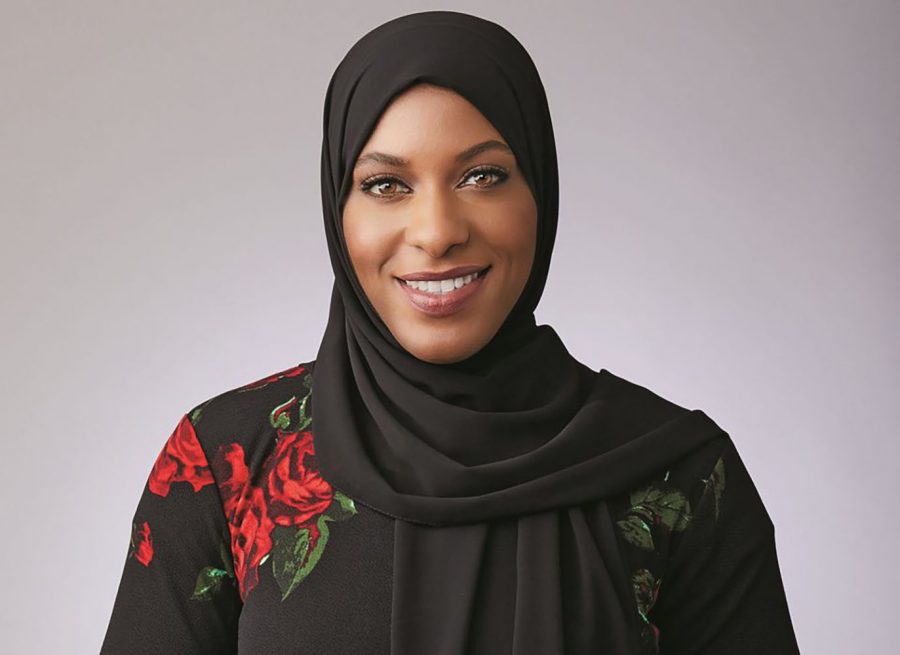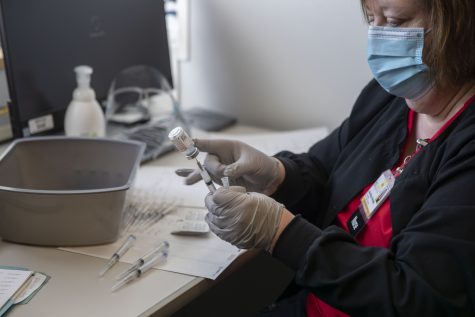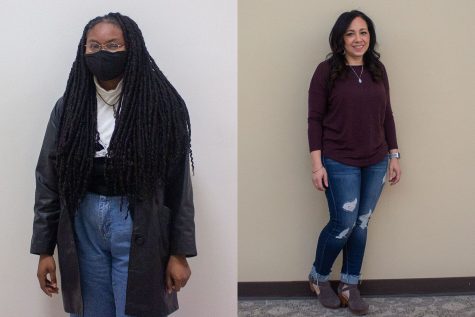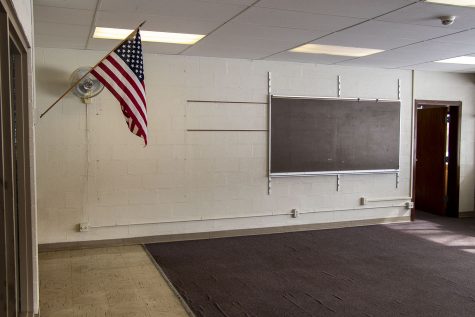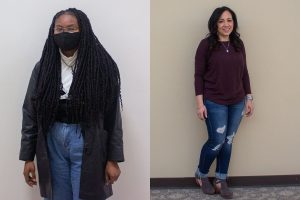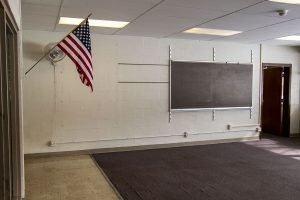University Lecture Committee to host Olympic medalist Ibtihaj Muhammad
Breaking down stereotypes and winning an Olympic medal are just some of Ibtihaj Muhammads many achievements
Olympic bronze medalist Ibtihaj Muhammad, of Maplewood, outed a racist fencing coach at St. John’s.
March 3, 2021
Standing on the podium and hearing her name called as an Olympic medalist in fencing for the United States, Ibtihaj Muhammad said, was the greatest “pinch me” moment of her life.
It was the culmination of hard work, blood, sweat, tears, different triumphs, she said, as well as speed bumps that she had in her eight years as a member of the U.S. National Olympics Team.
Muhammad, the first Muslim woman to wear a hijab while competing in the Olympics for the U.S., will be giving a virtual lecture at the University of Iowa on Wednesday evening.
“I feel like I thought about all of those moments and also how hard I worked to get there,” Muhammad said. “Without all those things happening, whether they were good or bad, wins or losses, I felt like that medal could not have happened.”
Before discovering fencing, Muhammad played a lot of other sports growing up in Maplewood, New Jersey. She said herself and her parents were intent on finding a sport where she could participate while dressing modestly, as a practicing Muslim who would eventually wear a hijab.
“[Fencing] uniquely accommodated those religious beliefs and it was the first time in my life where I literally looked like my teammates when in uniform, and it was just this very liberating moment for me as a kid,” she said.
From then on, she never looked back. Muhammad said she valued the idea of representation in sports, but she did not see it in her earlier years in fencing, as she was often the only person of color and sole competitor in hijab.
“After I graduated from Duke, I felt like there was an opening for me to really embark on this journey of creating change that I wanted to see in this sport,” she said.
Because she did not yet have international or senior level experience when she began her path to the Olympics, Muhammad said the process was definitely an uphill battle.
RELATED: University of Iowa Lecture Committee hosts ‘1619 Project’ creator Nikole Hannah-Jones
“I was determined to be one of the best athletes in the world,” she said.
Muhammad said she fought tooth and nail not just for herself, but to make sure that other young athletes that feel different or ostracized because of the color of their skin — or their religious beliefs — feel represented.
“I wanted them to feel like they could fence and be a part of a sport that I find really beautiful and want everyone to love,” she said.
Muhammad had faced discrimination in her sport since she was young all the way into the senior levels, she said. But she decided to take that as a push to be even better.
“I decided to lean into my identity,” she said.
She said that was how she was able to combat different moments of prejudice, discrimination, or just not being treated as equally as her teammates.
“It starts from learning to be unapologetic about your identities and who you are,” Muhammad said. “I think with that you arise at a place where you have strength that comes with it and allows you to show up as your authentic self.”
She said this mentality allowed her to compete better and be able to grow in her sport after finding confidence in who she was. From that, she said she was able to reach the highest level of her sport.
For her to qualify for the Olympics and wear a hijab, Muhammad said she felt like she was flipping stereotypes onto their heads.
Muhammad penned a memoir, “Proud: My Fight for an Unlikely American Dream,” which came out in 2018, and creator of her own clothing line Louella, which she began a few years ago.
“I think it is really important that the stories behind the medal are told,” she said. “For a lot of athletes, people see their shining moments maybe at the Olympics, maybe if they win a medal, but what does the journey prior to that look like?”
One thing Muhammad said she loved about her journey was the opportunity for young athletes to see themselves in this space since it was hard for her at a young age to envision herself at the professional level because of a lack of representation at the time.
“It was a moment for me to tell people, ‘look this is what happens’,” she said. “It was a moment to hold people accountable for their actions.”
When she started her clothing company Louella, Muhammad said it was her immediate goal to fill a void in the clothing market industry.
“I felt like it was time for us to have the opportunity to shop for clothes that are made here in the United States that are modest and that do not break the bank,” she said.
She said it has been a lot of fun to work with her sisters and give back to their community and work with female manufactures that employ women.



